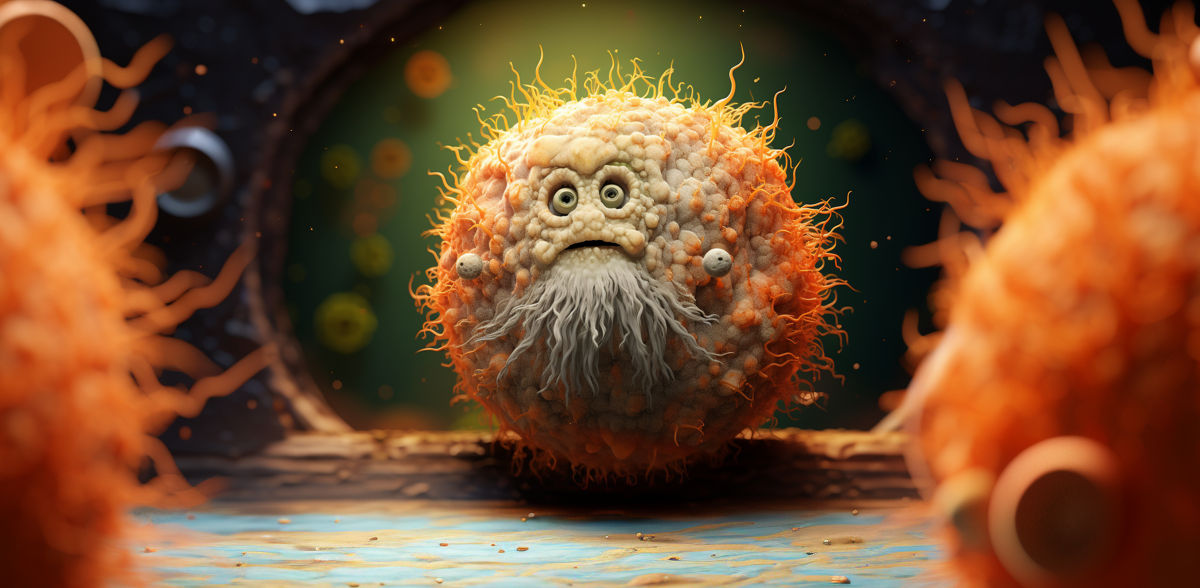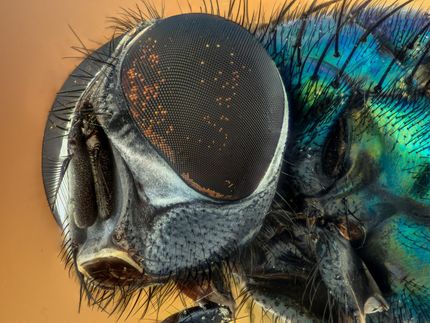How cells age: genes are read faster but less accurately with age
Slowing down RNA polymerase II extends lifespan and improves health
Advertisement
The genome of all living organisms contains information for the production of cell components, i.e. the proteins, which are necessary for the maintenance of cell function. An important step in the process of protein production is the reading and copying of this information from the genes, specific regions of the genome. This task is performed by the enzyme RNA polymerase II.
In a collaborative project, scientists from a total of six research laboratories at the University Medical Center Göttingen (UMG), the Cluster of Excellence on Cellular Stress Responses in Aging-associated Diseases (CECAD) at the University of Cologne, and the Max Planck Institute for Biology of Ageing have studied the speed of gene reading and copying process in more detail. They examined young and aging tissue from five different species: nematodes, fruit flies, mice, rats and humans. The researchers found that the speed by which genes are read and copied by RNA polymerase II increases with age. At the same time, the quality and accuracy of the copies produced, as well as their processing, decreases. At the same time, the scientists discovered that polymerases’ speed can be reduced by dietary restriction and molecular interventions. This led to an extended lifespan in flies and worms and to an increased ability for cell division in human cells.
"These findings show that there are interventions that could restore the accuracy of this age-related process and thus prove key to healthy aging. What we need to understand now is whether other important cellular processes lose accuracy with age and how exactly this loss is related to the occurrence of diseases later in life, including cancer," said Prof. Dr. Argyris Papantonis, head of the Translational Epigenetic Biology laboratory in the Institute of Pathology at UMG and one of the study's lead authors. The results were published in the international journal Nature.
Slowing down RNA polymerase II extends lifespan and improves health
In several individual experiments on detailed questions, the researchers found: Not only the speed of RNA polymerase II increases with age, but it can also be influenced. They succeeded in reducing the speed of the enzyme through food restriction and molecular interventions. This made it possible to extend the life span of flies and worms and increase the ability of human cells to continue cell divison.
To determine whether changes in the speed of the RNA polymerase II enzyme are related to the aging process, nematodes and fruit flies were genetically modified to have slowed-down polymerases. When comparing the lifespan of genetically modified animals with that of genetically unmodified nematodes and fruit flies, the researchers found that worms with the slowed enzyme lived on average about 20 percent longer than their normally aging conspecifics. The lifespan of the flies was extended by an average of about ten percent.
Investigations of the pharyngeal muscle of genetically modified older nematodes showed that, compared with pharyngeal muscles in unmodified worms, they displayed a higher pumping rate or rather contraction and relaxation movement. This is important for food intake. Slowing down of RNA polymerase II can thus apparently also positively influence the state of health.
Dietary restriction and molecular interventions affect RNA polymerase II speed
The influence of already known life-extended interventions, such as dietary restriction, on RNA polymerase II speed was examined. For this purpose, eight-week-old mice were divided into two groups: One group was allowed to eat as much as they wanted for four weeks, while the other group was put on a diet. The researchers then analyzed the enzyme speed in the kidney tissue.
In another experiment, the effect of food restriction was to be compared in young and old mice. For this purpose, RNA polymerase II speed was examined in the liver tissue of 5, 16 and 26.5-month-old mice. Young as well as old mice received either a more than adequate amount of food or a restricted diet for four weeks.
In nematodes and fruit flies, the researchers switched off a signaling pathway in cells that is already known from other studies to control aging. The speed of RNA polymerase II was examined in 14-day-old nematodes and in the brains of fruit flies at 30 and 50 days, and each was compared with genetically unmodified conspecifics of the same age.
"The results show that life-extended measures, such as dietary restriction or turning off a signaling pathway known to be involved in aging, were able to reduce RNA polymerase II speed in almost all species studied. This means that RNA polymerase II speed, which increases with age, can be reversed in most cases with life-extended measures," Papantonis said.
Original publication
Debès C, Papadakis A, Grönke S, Karalay Ö, Tain L, Mizi A, Nakamura S, Hahn O, Weigelt C, Josipovic N, Zirkel A, Brusius I, Sofiadis K, Lamprousi M, Lu YX, Huang W, Esmaillie R, Kubacki T, Späth MR, Schermer B, Benzing T, Müller RU, Antebi A*, Partridge L*, Papantonis A*, Beyer A*: Aging-associated changes in transcriptional elongation influence metazoan longevity: Nature 616; pp. 814–821 (2023)























































